|
Genres, Themes, Actors, and Directors:
- Al Jolson Films
- Amnesia
- Class Relations
- Frank Morgan Films
- Harry Langdon Films
- Homeless
- Lewis Milestone Films
- Love Triangle
- Musicals
Review:
Al Jolson returned to the screen after a three year absence in this costly ($1.25 million) box office bomb, based on a story by Ben Hecht and ultimately helmed by Lewis Milestone; as noted in TCM’s article:
Production on Hallelujah, I’m a Bum began in June 1932 with… Harry D’Arrast in the director’s chair. D’Arrast lasted two hours. He left after creative differences with Jolson on the morning of the first shooting day, and the production shut down. After a two-week pause, director Chester Erskin took over. [United Artists studio head Joseph] Schenck had actually wanted Lewis Milestone to come aboard, but Milestone was busy with another movie. Once it started up again, filming continued through August, and in October the film was previewed under the title Happy Go Lucky. The screening was a disaster. Schenck ordered a page-one rewrite of the entire script and started from scratch. He was now able to bring in Lewis Milestone, and he also threw out the [original] Irving Caesar songs and hired Richard Rodgers and Lorenz Hart to craft new ones.
Whew! It’s safe to say that Hallelujah, I’m a Bum remains a unique pre-Code musical, thanks to its “rhythmic dialogue” and its frank exploration of class and labor relations. Also notable is the presence of silent comedian Harry Langdon in a speaking role as “Egghead” (a controversial “worker” among hobos):
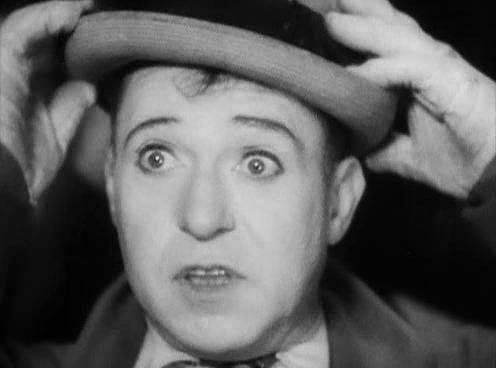
… and the presence of a black co-star (vaudevillian Edgar Connor).
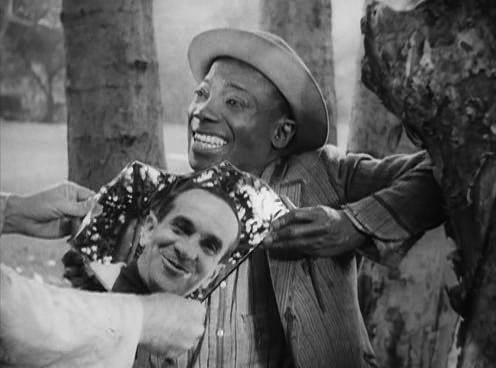
Redeeming Qualities and Moments:
- Fine cinematography and editing
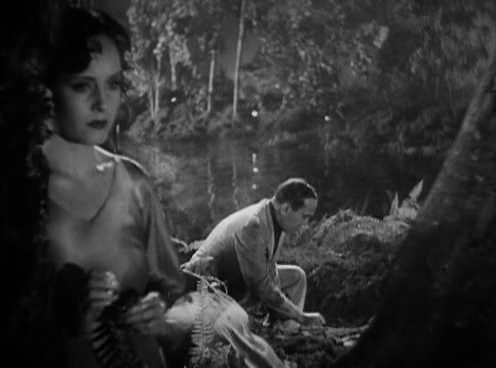
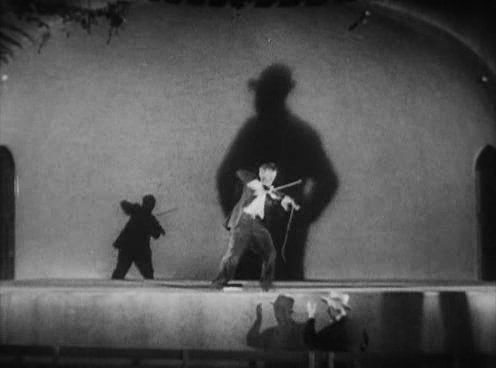
- Rodgers and Hart’s rhythmic dialogue and score
Must See?
Yes, as a unique pre-Code musical comedy.
Categories
Links:
|
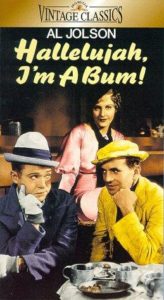




One thought on “Hallelujah I’m a Bum! (1933)”
First viewing. Not must-see.
It doesn’t surprise me that this now-obscure musical was a flop at the box office. Its logic just doesn’t fly. Hollywood telling audiences – during the Depression – that it’s enviable to be poor so that you can fully enjoy the wonders of nature is not that different from ‘our current President’ insisting that Americans have fully supported his arrogance in enforcing a government shutdown because “Americans want a border wall” more than they want their paychecks.
Rodgers and Hart admittedly take an inventive approach with the score – making it more of a continuum than the usual, long-held musical tradition of stretches of dialogue between songs. That element is an admirable experiment – but, in execution, Rodgers fares better than Hart, whose lyrics pale (and often seem forced) when compared with what he was capable of elsewhere.
S.N. Behrman’s screenplay does add some nice complication along the way – and even a bit of welcome tension – but the choice of a pat ending (aside from robbing the story of what it has earned) spirals the film into an unbelievable and ridiculous conclusion.
A brief chuckle may come in the last 10 minutes. Considering the role that Frank Morgan would famously portray 6 years later, it’s amusing to hear him say, “There’s no place like home.” when he comes out of a stupor. 😉